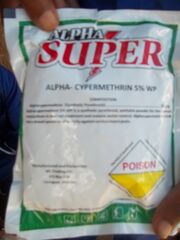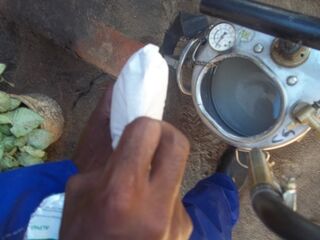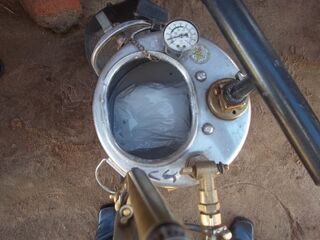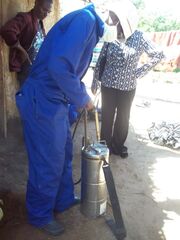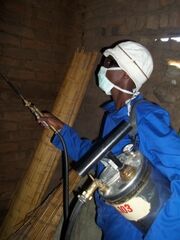16th February 2015 Status Email
We are very excited that the second phase of the IRS is finished now covering three villages AND that Peter Minjale says there are no mosquitoes in any of these 3 villages. He also says that, although they are seeing malaria cases at St. Andrews, NONE of these cases have been from the villages where the spraying has been done!
29th January 2015.
Dear Brian,
K2 TASO IRS EXERCISE IN MAKANDA VILLAGE, KASUNGU, MALAWI
On behalf of K2 TASO I wish to give you the following photographic report as we started the second phase IRS exercise in Makanda village. This exercise helps in killing mosquitoes once the mosquitoes get in contact with the sprayed surfaces.
We are very grateful to Bridges Malawi for your support to K2 TASO in order to implement the exercise. We will send you data upon completion of the exercise. Tomorrow we will start IRS in Mphepo village.
Kind regards.
Peter.

